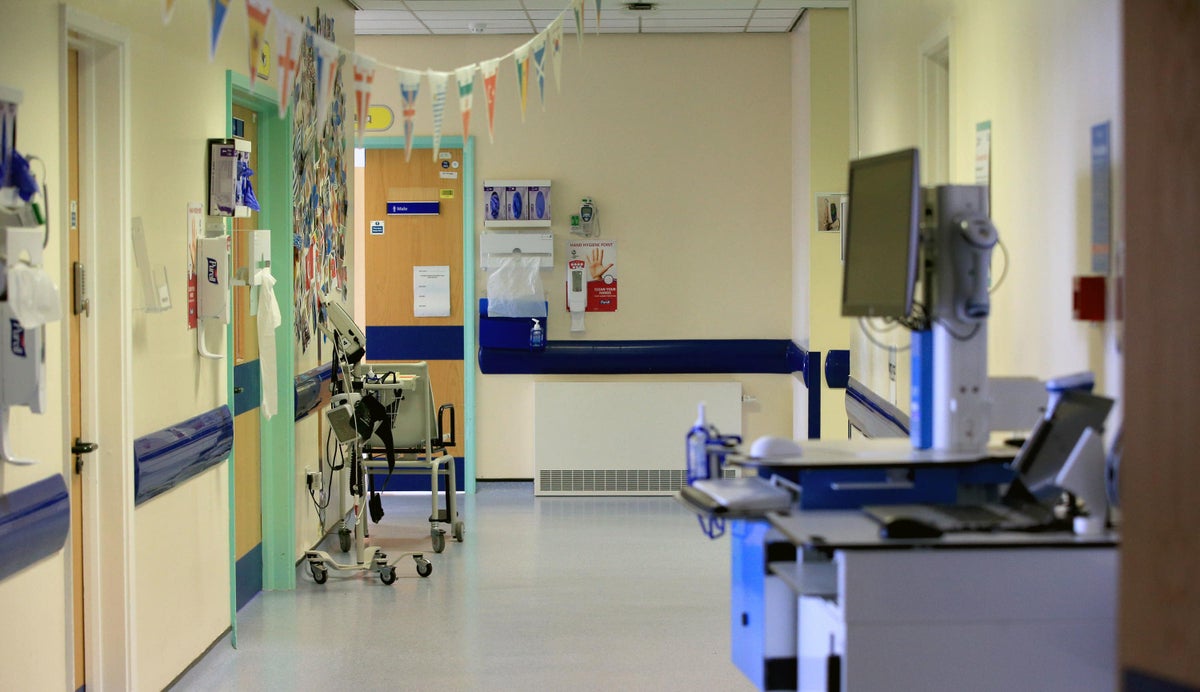
NHS staff are failing to follow guidelines for providing care to sickle cell patients - and some of the advice has been branded as “unfit for purpose”.
The NHS Race and Health Observatory commissioned research, undertaken by Public Digital, to explore the lived experience of people undergoing emergency hospital admissions for sickle cell and managing crisis episodes at home.
The Sickle cell digital discovery report: Designing better acute painful sickle cell care, published on Tuesday, found that the existence of service-wide information tailored by the National Institute for Health and Care Excellence has “arguably not been designed for an ambulance, A&E and emergency setting”, and states it has been proven that this guideline is “not being used and adhered to consistently”.
Moreover, healthcare professionals have warned that the National Haemoglobinopathy Register (NHR) - a database of patients with red cell disorders - is not being readily accessed, while patients reported being treated in a way that breached prescribed instructions.
“We believe that sickle cell crisis guidelines could be improved in terms of their usability in a high-pressure emergency setting, and in terms of promoting access to them,” the report authors concluded, adding that current guidance should be adapted.
These problems are fuelling the ongoing issue of healthcare professionals, who are unfamiliar with sickle cell crises, not being trained on how to appropriately treat a crisis.
The Independent has previously revealed that just half of healthcare professionals in the UK and nine other countries feel they have sufficient tools to manage the long-term damage that sickle cell disease brings.
Sickle cell disease is a blood disorder that predominantly affects Black people. It is estimated that there are between 12,500 and 15,000 people with the illness in the UK.
Patients suffering painful sickle cell episodes and struggling with poor hospital care experiences were also outlined in the new discovery report. This comes after a landmark parliamentary inquiry found evidence of racism across NHS patient care in November 2021.
Working with Public Digital, a consultancy, the observatory’s research found a lack of individual care plans in place for sickle cell patients, and more broadly no clear definition of what constitutes an actual care plan.
The study further set out to explore what technology is in place for Accident and Emergency clinicians, red-cell specialists, and ambulance care to aid fast support to sickle cell patients on their emergency hospital arrival.
Whilst digital care plans already exist in some parts of the NHS, a number of sickle cell patients did not have one, and where they did, most were paper-based, and often dismissed by healthcare professionals.

Researchers found there was a limited amount of technology, dedicated health sites, and web or digital tools that currently exist to support patients at the point of crisis and for managing the condition at home. Valued resources cited by interviewees included the Sickle Cell Society website and self-organised communities on the WhatsApp social platform.
Public Digital and the Observatory are now advocating for personalised, digital care plans to be introduced as a olution for sickle cell service transformation.
Dr Carl Reynolds, Sickle Cell Medical Adviser at the NHS Race and Health Observatory, said: “We hope this research leads to rapid changes, and the NHS explores the full potential of introducing effective digital care plans to support patients during a sickle cell crisis, as a priority.
“Now is the time for change and taking a patient-centred, evidence-based approach to the design and implementation of interventions is key for future sickle cell services.”
An NHS spokesperson said: “Sickle cell disease can be an extremely debilitating, distressing condition and NHS England recently overhauled the way treatment is delivered to patients with 10 new centres for sickle cell disease being set up across the country, including dozens of specialist teams.
“While specialist services are central to these improvements, it’s also important that all parts of the NHS better understands sickle cell disease and the challenges these patients face, and we are actively offering additional training to help improve this care across the health service.”







